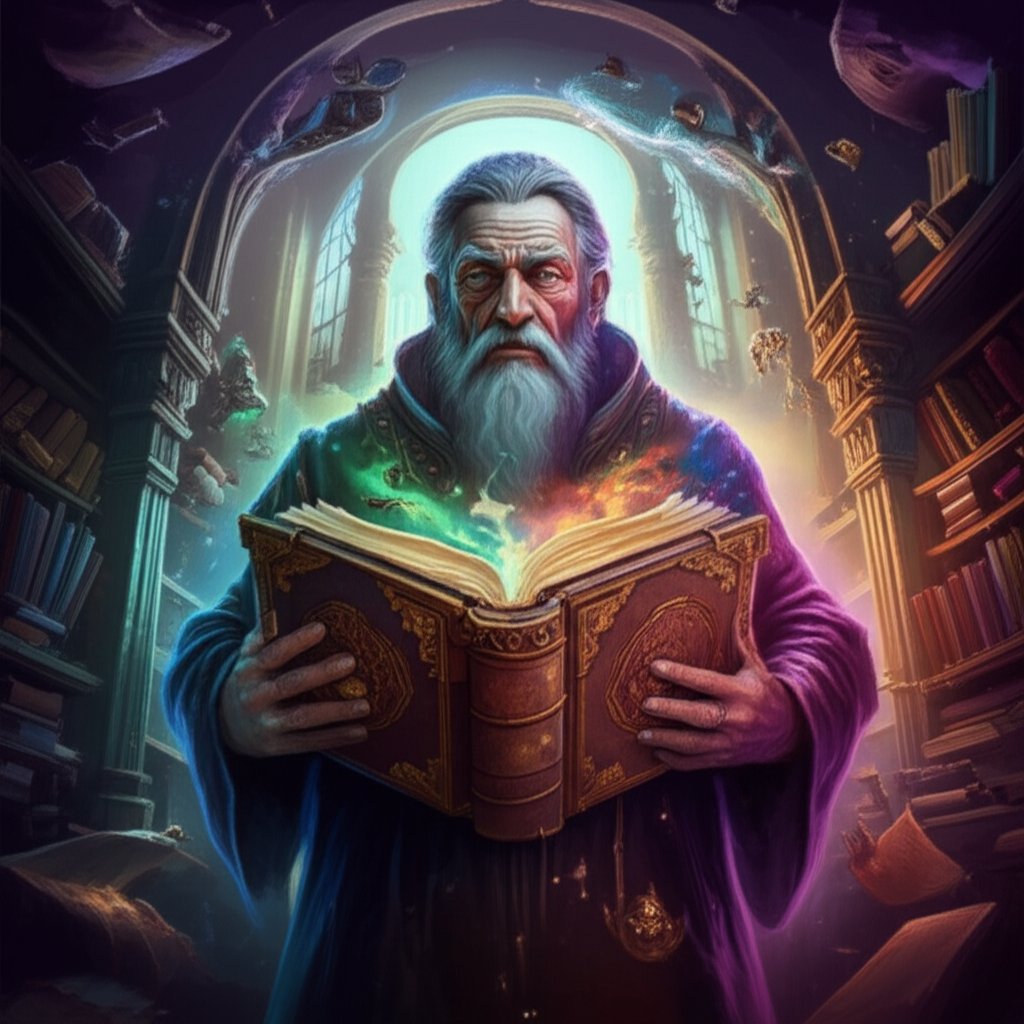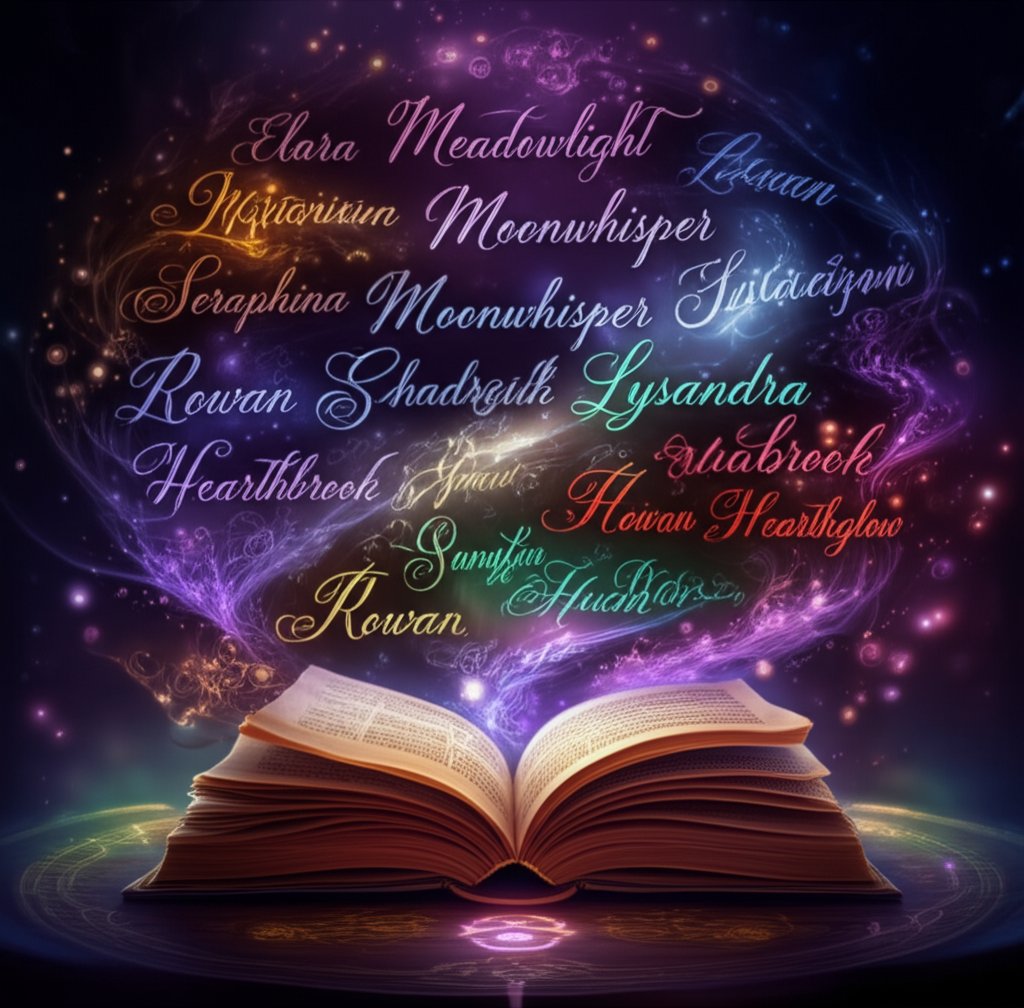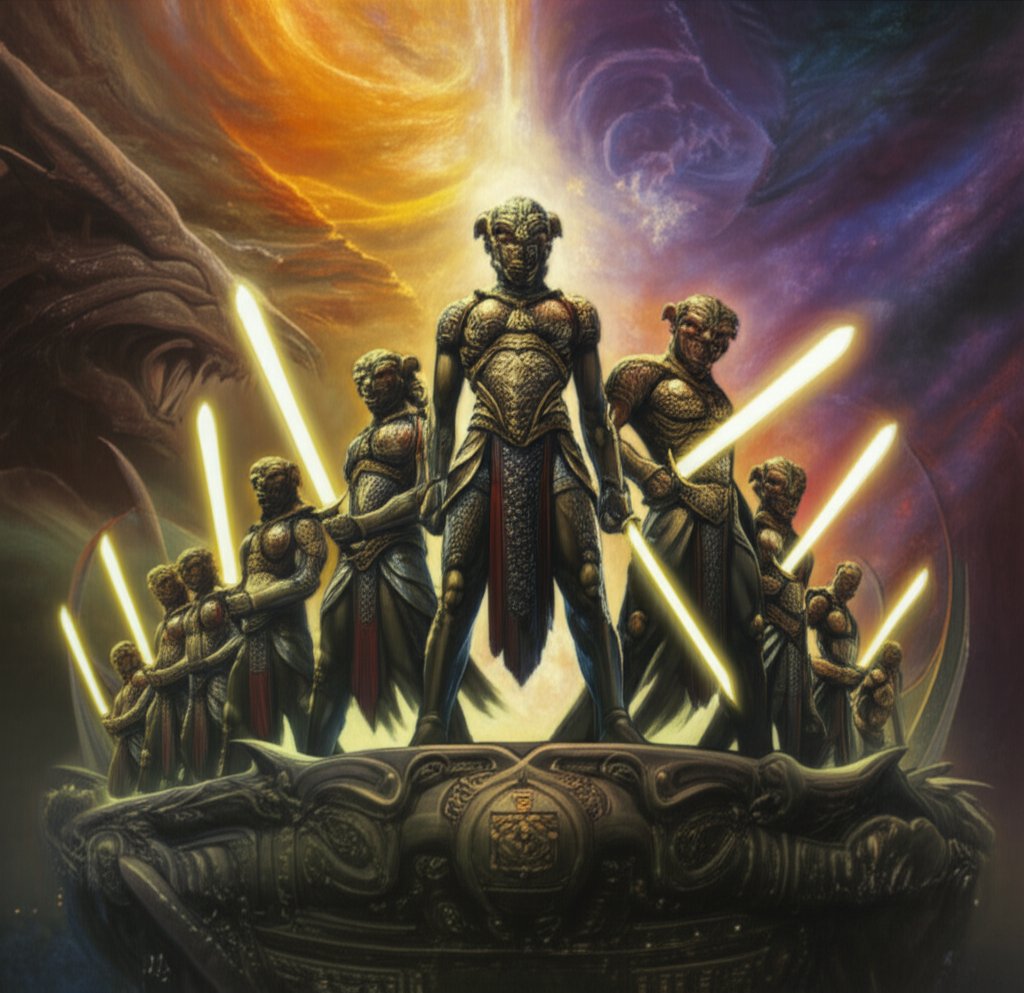Introduction to the Mage Name Generator
When you picture a legendary mage in your favorite fantasy novel, video game, or tabletop RPG, what’s the first thing that comes to mind? Often, it’s their name—a single word that conjures images of arcane power, mysterious origins, and a story waiting to unfold. But how do you find a name that truly fits your spellcaster? That’s where a mage name generator comes in, offering inspiration and structure for anyone seeking to create memorable characters in fantastical worlds.
Sounds complex? Let’s break it down. A mage name generator is a creative tool designed to help writers, gamers, and roleplayers discover names infused with magic, mystery, and meaning. Whether you’re crafting a wise old wizard, a fierce sorceress, or a shadowy warlock, the right name does more than just label your character—it helps define their identity, hint at their magical specialty, and even shape their backstory. Imagine Gandalf without his iconic name, or Daenerys Targaryen with something less regal; the resonance just wouldn’t be the same.
Why Does a Mage’s Name Matter?
Choosing the perfect name for your mage goes far beyond aesthetics. In fantasy storytelling, names can:
- Set the tone: Is your mage a benevolent healer or a master of forbidden arts? The name can hint at their role and alignment.
- Reflect culture and setting: A name rooted in elven language feels different from one inspired by ancient myths or invented tongues.
- Suggest power and legacy: Memorable names can evoke legendary status or hint at a hidden lineage.
- Enhance immersion: Distinctive names help players and readers fully engage with your world.
Writers like Tolkien and Rowling have famously spent hours—sometimes days—searching for the right names, knowing that a well-chosen name can define a character’s journey and leave a lasting impression. Name generators take some of the guesswork out of this process, offering curated or randomized options tailored to different genres, cultures, and magical archetypes.
What to Expect in This Guide
In the chapters ahead, you’ll discover how to use a mage name generator to create fantasy mage names that fit every situation. We’ll cover:
- Gender-specific naming (for female, male, and non-binary mages)
- Thematic and archetype-driven names (like sages, rogues, or shadow mages)
- Race-specific conventions for elves, humans, orcs, and more
- Game-specific advice for DnD, video games, and original worlds
By the end, you’ll have the tools and insights to craft names that don’t just sound magical—they feel magical, too. Ready to dive in and discover the perfect name for your next spellcaster? Let’s get started!
What Makes a Great Mage Name
Ever wonder why some mage names stick with you long after you’ve closed the book or finished the campaign? It’s not just about sounding mystical—there’s an art and a science to creating unique mage names that truly resonate. Let’s break down the key ingredients that make a mage’s name powerful, memorable, and perfectly suited for your fantasy world.
The Anatomy of a Memorable Mage Name
Imagine you’re reading about Lysander Dreamweaver or Freya Spellstorm. Instantly, you get a sense of magic, mystery, and character. But what sets these names apart from something plain like John Smith? It all comes down to a few essential qualities:
- Thematic Resonance: The best mage names evoke a sense of the arcane—think about names that hint at magical elements, cosmic power, or ancient wisdom. For example, “Stormweaver” or “Voidwalker” immediately conjure images of spellcasting prowess.
- Phonetic Appeal: When you say the name out loud, does it flow smoothly? Names with rhythmic patterns or alliteration (like “Seraphina Brightspark”) are often easier to remember and more fun to pronounce. Focus on combinations of sounds that roll off the tongue and avoid overly complex clusters that might trip up readers or players.
- Originality: A unique mage name stands out from the crowd. Avoid names that sound too similar to common real-world names unless you’re intentionally blending genres. Instead, experiment with invented roots, unusual suffixes, or compound words that evoke magic or mystery.
- Lore Consistency: Does the name fit within the culture, language, or magical tradition of your world? Names like “Gaius Thundershade” or “Ysabel Lightwalker” feel right at home in a fantasy setting because they reflect established conventions and reinforce world-building details.
- Pronounceability: Even the most creative name loses its charm if no one can say it. Striking a balance between uniqueness and readability ensures your audience can connect with the character.
Phonetics, Etymology, and the Magic of Sound
Sounds complex? Here’s a simpler approach: focus on the sounds, not just the letters. Many fantasy writers, like Tolkien, created entire languages to give their names depth, but you don’t have to go that far. Think about the following tips:
- Start with a base word or root that hints at your mage’s specialty (like “Frost,” “Rune,” or “Star”).
- Add prefixes or suffixes that feel magical—“-weaver,” “-shade,” “-fire,” or “-whisper” can instantly transform a name.
- Mix and match real words with invented syllables for a blend of familiarity and fantasy.
- Keep spelling straightforward when possible, so readers aren’t guessing at pronunciation.
For example, “Ophelia Cloudsinger” combines a classic first name with a whimsical, evocative surname, while “Noctus Gravewind” uses darker sounds to suggest a more mysterious or even sinister mage.
Checklist: Qualities of a Strong Mage Name
| Quality | Why It Matters | Example |
|---|---|---|
| Thematic Resonance | Hints at magic or lore | Mirabel Starfire |
| Phonetic Appeal | Easy and pleasant to say | Seraphina Brightspark |
| Originality | Stands out as unique | Lysander Dreamweaver |
| Lore Consistency | Fits the world’s culture | Kael Darkweaver |
| Pronounceability | Accessible to all readers | Freya Spellstorm |
By keeping these qualities in mind, you’ll find it much easier to use a mage name generator or invent your own memorable mage names that leave a lasting impression. Next, we’ll dive into crafting names specifically for female mages and how archetype and style can shape your choices.
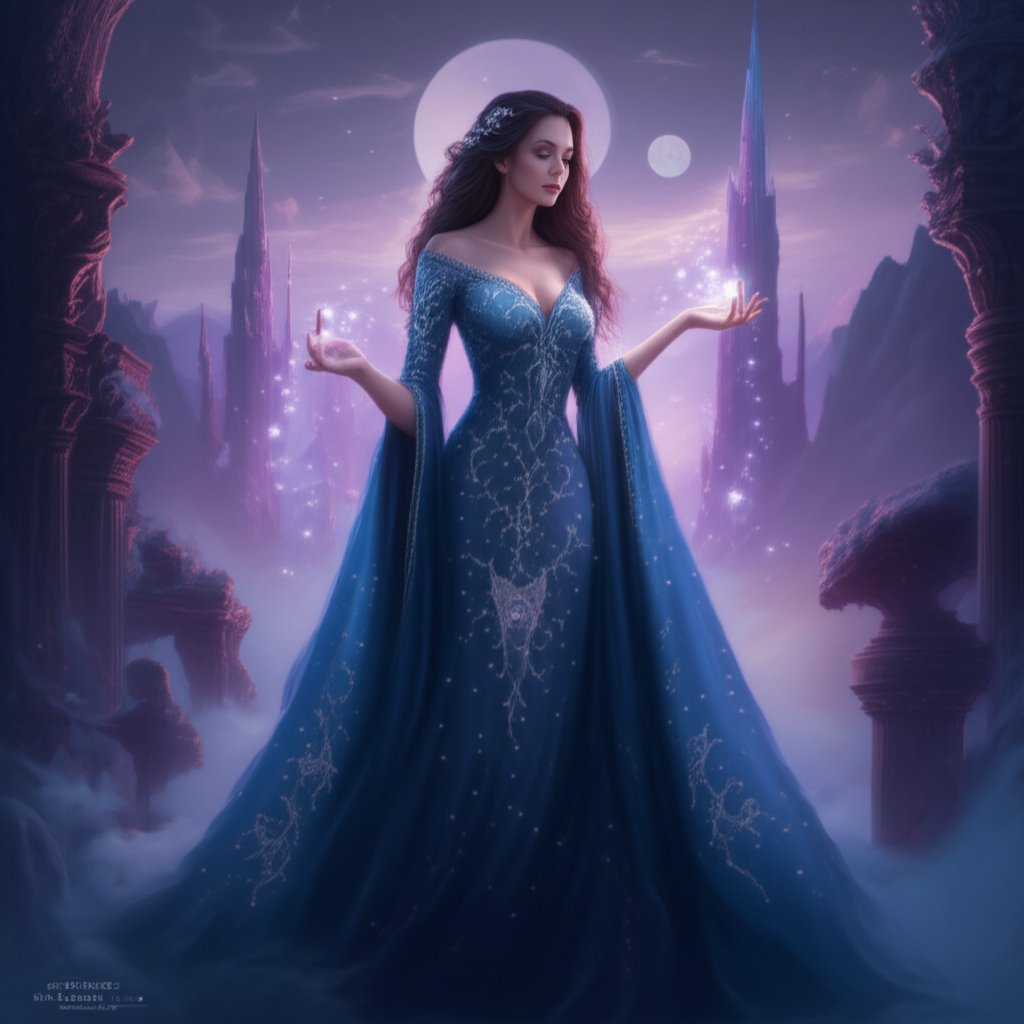
Crafting Compelling Names for Female Mages
When you picture a powerful enchantress or a mysterious oracle, what’s the first detail that brings her to life? More often than not, it’s her name—a single word that hints at her magic, her story, and her place in your fantasy world. But how do you create a name that feels both magical and meaningful? That’s where a female mage name generator can be your best friend, but there’s also an art to using it well.
Understanding Female Mage Archetypes
Sounds complex? Let’s break it down. Female mages in fantasy stories often fall into distinct archetypes, each with naming conventions that reflect their role, power, or personality. Here are some popular archetypes and what to consider when naming them:
- Enchantress: Names are often melodic and alluring, evoking beauty and charm—think "Seraphina" or "Lyra."
- Sorceress: These names may sound ancient or mysterious, with roots in myth or legend, such as "Morgana" or "Circe."
- Oracle/Seer: Names for seers often feel ethereal, wise, or celestial—examples include "Astraea" or "Elara."
- Dark Mage: If your character walks the shadowy path, names like "Raven" or "Bellatrix" evoke a sense of danger and forbidden magic.
- Nature Mage: Names here might connect to flora, fauna, or the elements, such as "Elowen" or "Lunafreya."
Choosing a name that matches your mage’s archetype helps set the tone for her abilities, backstory, and the way others perceive her in your world (YEN.com.gh).
Tips for Using a Female Mage Name Generator Effectively
When you turn to a mage name generator female tool, you’ll notice a vast range of options. How do you narrow it down to the perfect fit? Try these steps:
- Define Your Archetype: Decide if your mage is an enchantress, sorceress, oracle, or something else—this guides your choices.
- Consider Meaning: Look for names with meanings or origins that reflect your character’s power or personality. For instance, "Seraphina" means "fiery" and suits a passionate spellcaster.
- Mix and Match: Don’t be afraid to combine first names and surnames from different sources—a unique pairing like "Aurelia Nightshade" can make your mage stand out.
- Test Pronunciation: Say the name out loud. Does it roll off the tongue and feel right for your setting?
- Check for Uniqueness: Ensure your chosen name isn’t too similar to famous characters unless you want a deliberate homage.
Remember, sometimes the story behind a name is just as important as the sound. Drawing inspiration from mythology, literature, or even nature can help you create a name that’s both original and fitting.
Comparing Styles: Female Mage Name Examples and Connotations
Not sure which style fits your character best? Here’s a handy table comparing different approaches to female mage names, their examples, and the feelings or images they evoke:
| Style | Example Name | Connotation |
|---|---|---|
| Enchantress | Seraphina Brightspark | Alluring, graceful, radiant |
| Sorceress | Morgana Starfall | Ancient, mysterious, powerful |
| Oracle/Seer | Astraea Moonwhisper | Wise, ethereal, prophetic |
| Dark Mage | Ravenna Spellseer | Sinister, enigmatic, forbidden |
| Nature Mage | Elowen Silverstream | Earthy, nurturing, harmonious |
By aligning your character’s name with her archetype and personality, you’ll create a more immersive and believable mage. And if you ever get stuck, a female mage name generator is always there to spark new ideas—just remember to tweak and personalize the results until they truly fit your vision.
Next, we’ll explore how to generate names for evil and dark mages, focusing on the phonetic and linguistic traits that make these names truly memorable.
Finding Names for Evil and Dark Magic Users
When you imagine a villainous sorcerer—one who commands forbidden spells or whispers with spirits from the shadows—what sort of name comes to mind? Is it chilling, harsh, or mysterious? Creating names for evil or dark mages is a unique challenge, but with a little guidance, you can craft names that exude menace and intrigue. Let’s explore how to use an evil mage name generator or your own creativity to conjure up names that truly fit the dark side of magic.
Phonetic and Linguistic Traits of Villainous Mage Names
Sounds complex? Here’s how to break it down. Names for dark mages often share certain sounds and patterns that set them apart from their heroic counterparts. You’ll notice:
- Hard consonants: Names with K, G, D, V, or Z (like "Karsa" or "Velius") deliver a punchy, sinister feel.
- Dark vowels: Deep, resonant vowels (A, O, U) add weight and mystery—think "Morden" or "Ulric."
- Uncommon letter combinations: Pairings like "th," "x," or "dr" (as in "Strahd" or "Xarann") sound more exotic and menacing.
- Short, abrupt endings: Names that end in hard sounds (like "Krugis" or "Dirk") often feel more threatening.
- Mythic or archaic roots: Drawing from ancient languages or mythological figures can lend a sense of forbidden power.
For example, names such as "Hellmut," "Athan," or "Damazo" immediately suggest characters steeped in dark arts or villainous intent (HubPages).
Strategies for Creating Evil and Dark Mage Names
Ready to generate your own? Here are some practical steps and tips for using a dark mage name generator or inventing names from scratch:
- Start with a mood: Decide if your mage is a brooding necromancer, a cunning warlock, or a corrupted former hero. The mood will guide your naming choices.
- Combine dark imagery: Use words or roots associated with shadows, death, poison, or ancient curses—like "Grave," "Shade," "Nox," or "Venom."
- Add a title or descriptor: Pair the name with a title for extra depth, such as "Velius the Black" or "Kastor the Accursed."
- Borrow from myth or legend: Names inspired by underworld figures (like "Hades" or "Morrigan") or infamous historical sorcerers add gravitas.
- Mix and match: Combine harsh-sounding syllables or blend real names with invented elements for originality—"Narkissos," "Adnos," or "Talisma."
Sources of Inspiration for Sinister Mage Names
If you’re stuck, try drawing from these classic sources:
- Mythological underworld figures: Hades, Hel, Anubis, Morrigan
- Ancient curses or forbidden spells: Use Latin or Greek roots related to death, shadows, or betrayal
- Historical or literary villains: Rasputin, Crowley, Thoth Amon
- Dark-sounding real names: Vlad, Damien, Lucien
- Invented combinations: Merge syllables from existing dark names for something new—"Vornax," "Kelkor," or "Zurr."
Here are a few examples from actual fantasy sources and generators:
- Morden – A classic choice for a shadowy antagonist
- Strahd – Instantly evokes dread and authority
- Xarann – Exotic, with a hint of the forbidden
- Damazo – Suggests betrayal or doom
- Kastor the Accursed – Adds story and menace in one
For even more variety, consider using synonyms for "mage" like "warlock," "necromancer," or "sorcerer" to further set the tone (Sorcerer of Tea).
By blending these strategies, you’ll create evil mage names that not only sound sinister but also hint at your character’s dark history and magical prowess. Up next, we’ll see how elemental themes—like fire, frost, and lightning—can shape the identity of your magical characters even further.
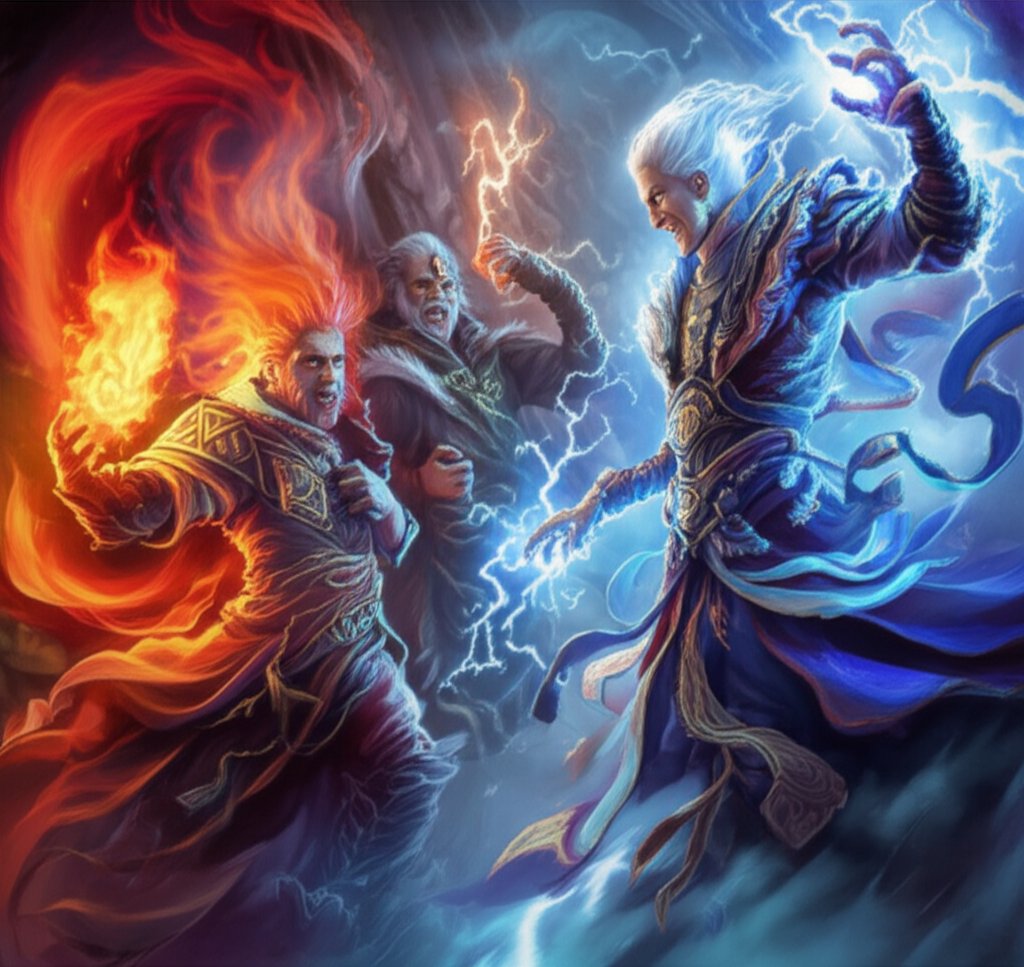
Elemental Names for Fire, Frost, and Lightning Mages
When you picture a mage who commands the raw forces of nature—flames that leap at a gesture, ice that freezes with a whisper, or lightning that crackles from their fingertips—what kind of name do they bear? The right elemental name does more than hint at power; it instantly conjures the essence of your character’s magic. But how do you find a name that truly embodies fire, frost, or lightning? Let’s break down some practical strategies and examples to help you spark the perfect identity for your elemental mage.
Why Elemental Names Matter
Sounds complex? Think of it this way: an elemental mage’s name should reflect both their magical specialty and their personality. A mage tied to fire might have a name that feels fierce or passionate, while a frost mage’s name could evoke stillness or clarity. Lightning mages, in contrast, often have names that suggest speed, unpredictability, and raw energy. Using a fire mage name generator or frost mage name generator can help you find inspiration that fits these themes.
Choosing Names by Element: Fire, Frost, and Lightning
| Element | Qualities | Naming Tips | Sample Names |
|---|---|---|---|
| Fire | Power, passion, destruction, renewal |
| Pyrrhus, Emberlyn, Vulkara, Ignis, Blazeheart |
| Frost | Stillness, endurance, clarity, cold |
| Isendra, Glacian, Virelle, Frostwyn, Shivera |
| Lightning | Speed, unpredictability, power, energy |
| Zephyros, Voltrix, Lirael, Stormis, Thundara |
Tips for Crafting Elemental Mage Names
- Start with the element’s core qualities: Ask yourself, “What does fire/frost/lightning mean to my mage?” Let these traits guide your choices.
- Blend real-world roots and fantasy flair: Names like "Ignis" (Latin for fire) or "Glacian" (evoking glaciers) feel both authentic and magical.
- Use descriptive titles or surnames: Adding a second part—like "Blazeheart," "Frostvein," or "Stormcaller"—instantly creates a sense of history and power.
- Mix and match: Don’t hesitate to combine syllables, invent new endings, or add mythic references for originality.
- Test for pronunciation and impact: Say the name aloud. Does it evoke the element’s spirit? Is it memorable?
For even more inspiration, online generators can provide lists of elemental names, often giving you options that aren’t limited by gender or traditional naming conventions. You’ll notice that many elemental names are unisex, allowing you to focus on the power and personality behind the name rather than fitting a specific mold.
Going Beyond the Basics: Adding Depth to Your Elemental Mage
Imagine your mage as more than just a wielder of elemental power. Adding a title, surname, or even a nickname can make their identity richer and more believable. For example:
- Emberlyn the Flame-Touched: Suggests a personal connection to fire, perhaps a backstory of surviving a magical blaze.
- Virelle Frostvein: Implies a lineage or magical heritage tied to ancient ice sorcerers.
- Zephyros Stormcaller: Hints at a mage who can summon tempests and command the skies.
By weaving together elemental qualities, evocative sounds, and unique titles, you’ll create names that not only stand out but also tell a story at a glance. Next, we’ll look at how specialized mage types—like battle mages and blood mages—blend martial or forbidden elements into their names, adding another layer of intrigue to your magical world.
Specialized Titles for Battle and Blood Mages
When you picture a mage charging into the fray or drawing power from forbidden rituals, what kind of name do they bear? Creating names for specialized spellcasters like battle mages and blood mages is a unique challenge—one that blends the might of warriors with the mystique of arcane tradition. Let’s explore how a battle mage name generator or blood mage name generator can help you strike this balance and craft names that truly stand out.
Blending Martial and Arcane Elements: Naming Battle Mages
Sounds complex? Not really, once you know what to look for. Battle mages are defined by their dual mastery of physical combat and spellcasting. Their names often reflect both strength and sorcery, combining words or sounds associated with warfare and magic. Here’s how you can approach naming a battle mage:
- Use strong, assertive roots: Words like "Iron," "Steel," "War," or "Blade" instantly evoke martial prowess.
- Pair with magical or elemental suffixes: Add endings like "-weaver," "-caster," or "-flare" to blend the two themes—think "Ironweaver" or "Bladestorm."
- Incorporate titles: Titles such as "the Arcane Vanguard" or "Spellblade" reinforce the dual nature of the character.
- Consider alliteration or rhythmic patterns: Names like "Garrick Grimward" or "Seren Spellstrike" roll off the tongue and are easy to remember.
For example, community discussions about mage archetypes often suggest names like "Battle-mage," "SpellSword," or "Warmage," each fusing martial and magical motifs (Ashes of Creation Forums). These names immediately signal a character who is as comfortable wielding a sword as slinging spells.
Visceral and Forbidden: Naming Blood Mages
When you think of a blood mage, you imagine someone who channels life force, manipulates blood, or practices taboo magic. Their names should evoke a sense of danger, power, and the forbidden. Here’s how to capture that mood:
- Draw from medical or anatomical terms: Words like "Sanguine," "Hemorrhage," or "Vitalis" hint at blood and life force.
- Incorporate ancient or mythic roots: Use Latin or Greek elements like "Sanguis" (blood), "Cruor" (gore), or "Erythro" (red).
- Add dark or mysterious descriptors: Pair with words like "Shade," "Veil," or "Night" to suggest secrecy or danger.
- Invent new compounds: Blend creative roots for originality—names like "Sanguinomancer," "Cruorosophy," or "Bloodvein" feel both arcane and unsettling (RPG.net).
Some evocative blood mage names include "Crimson Veil," "Hemovex," or "Vitalis the Red." These names not only set the tone but also hint at the mage’s unique powers and the risks of their craft.
Touching on Black Mage Names and Related Archetypes
What about black mages or other forbidden spellcasters? While not always as visceral as blood mages, black mage names often rely on dark, enigmatic, or elemental roots, such as "Nocturne," "Umbra," or "Tenebris." Titles like "the Shadowbinder" or "Ebonflame" reinforce their mysterious or sinister nature.
- Use color symbolism: "Black," "Ebon," or "Shadow" instantly conjure images of darkness and forbidden magic.
- Combine with magical or elemental words: "Shadowflame," "Obsidianstorm," or "Nightweaver" are memorable and thematic.
By blending martial, visceral, and arcane elements, you’ll create names that capture the essence of these complex mage archetypes. Next, we’ll look at how to create authentic names for DnD campaigns, ensuring your spellcaster fits seamlessly into any fantasy setting.
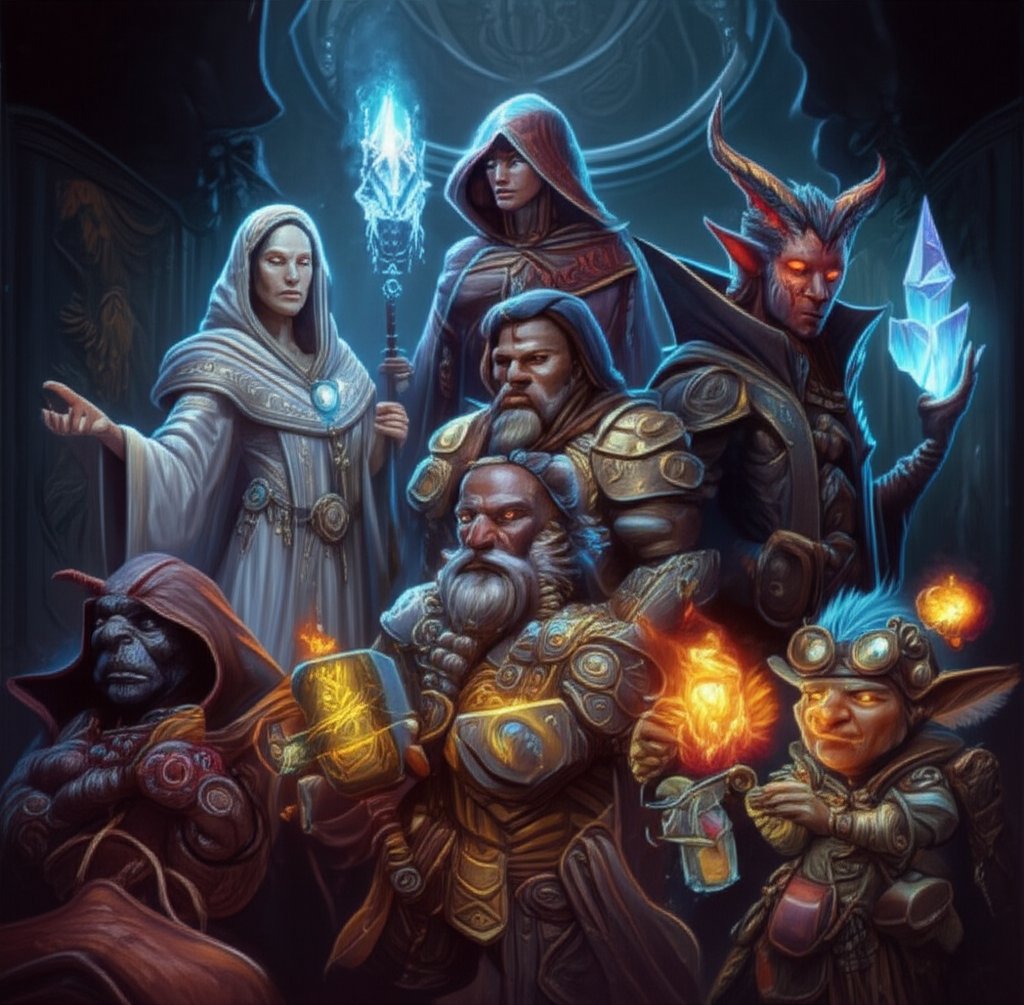
Creating Authentic Mage Names for DnD Campaigns
When you join a Dungeons & Dragons campaign, have you ever noticed how a character’s name can instantly transport you into the world’s lore? Whether you’re conjuring a fireball-slinging wizard or a contemplative wu jen from distant Kara-Tur, choosing an authentic mage name is more than a creative exercise—it’s the first step in building a believable, immersive fantasy persona.
Why Authenticity Matters in DnD Mage Names
Sounds complex? Let’s break it down. DnD is a tapestry of cultures, races, and magical traditions. Using a dnd mage name generator can spark ideas, but weaving in cultural context and lore makes your character memorable and true to the setting. Imagine playing a mage in the Forgotten Realms—would a name like “John Spellman” have the same impact as “Thalorn Moonshadow” or “Kai Tsao Shou Chin”?
Authentic names do more than sound cool. They:
- Reflect your character’s heritage, background, and magical tradition
- Enhance immersion for the entire table or audience
- Respect the rich tapestry of DnD’s established worlds, like Faerûn and Kara-Tur
- Open narrative doors—NPCs might react differently to a name steeped in local legend or foreign mystique
Building a Name: Culture, Class, and Backstory
Before you roll for a name, start by considering your mage’s race, homeland, and magical discipline. DnD sourcebooks and campaign settings provide sample names and naming conventions for each race—elves, dwarves, humans, and more. For example, elves favor melodic, vowel-rich names, while dwarves lean toward sturdy, consonant-heavy choices. If your mage hails from Kara-Tur—a land inspired by East Asian cultures—their name should echo the setting’s traditions and language patterns (Forgotten Realms Wiki).
Here are some actionable steps to guide your process:
- Research the setting: Use official DnD materials or reliable wikis to understand naming conventions for your character’s origin.
- Mix and match syllables: Combine sounds or roots from sample names, or use a generator as a base and tweak the result.
- Draw on real-world language: For Kara-Tur, you might use Chinese, Japanese, or Korean-inspired names, always with respect for cultural significance.
- Add a title or epithet: Epithets like “the Jade Sage” or “Stormweaver” add lore and personality.
- Test for resonance: Say the name aloud—does it fit your mage’s story and the world they inhabit?
Deep Meaning: Using Culturally Resonant Name Generators
Want a name with genuine depth? Especially for campaigns set in Kara-Tur or inspired by East Asian fantasy, authenticity is key. That’s where tools like the Chinese Name Generator shine. Unlike basic random generators, this tool creates names rooted in real cultural meaning—each name is crafted to sound mystical, ancient, and rich with story. Imagine your mage bearing a name that translates to “Celestial Dragon” or “Wise Forest”—it’s not just a label, but a backstory in itself.
Using such a generator allows you to:
- Instantly give your character a sense of history and place
- Choose between traditional and modern styles, or even gender-specific options
- Stand out in your campaign with a name that’s both unique and meaningful
DnD Race Naming Conventions: A Quick Comparison
Let’s look at how different DnD races approach mage names, and see how you can adapt these conventions for your character. Here’s a handy table to guide your choices:
| Race | Naming Traits | Sample Mage Name | Setting/Lore Notes |
|---|---|---|---|
| Elf | Melodic, vowel-rich, often nature-inspired | Aeliryn Starbreeze | Reflects connection to magic and the natural world |
| Dwarf | Harsh, sturdy, often compound names | Grimthor Runehammer | Suggests endurance and tradition |
| Human (Faerûn) | Wide variety, sometimes echoing medieval or ancient names | Kael Thundershade | Flexible; can reflect class, region, or magical specialty |
| Dragonborn | Guttural, draconic, often short syllables | Vrash Drakos | Evokes strength and magical heritage |
| Gnome | Playful, whimsical, sometimes alliterative | Fizzlebop Tinkertop | Matches quirky, inventive nature |
| Kara-Tur (Shou) | Chinese-inspired, meaningful, often poetic | Zhen Yu (True Jade) | Deep cultural resonance; ideal for campaigns set in Kara-Tur |
Quick Tips for the Perfect DnD Mage Name
- Let your character’s story and world shape their name, not the other way around.
- Use authentic sources or generators to avoid stereotypes or shallow references.
- Consider adding a title or epithet for extra flavor and legend.
- When in doubt, say the name aloud and see if it inspires you to imagine your mage’s next adventure.
By grounding your spellcaster’s identity in authentic naming traditions, you’ll create a character who feels right at home in any DnD world—especially in richly detailed settings like Kara-Tur. Next, we’ll dive deeper into naming conventions for specific fantasy races, so you can tailor your mage’s name to elves, orcs, humans, and beyond.
Race-Specific Names for Your Elf, Orc, and Human Mages
When you imagine a spellcaster from a world teeming with elves, orcs, humans, and gnomes, do you picture a name that fits their heritage and magical tradition? Sounds complex? Let’s break it down: race-specific naming not only anchors your mage in a believable world but also infuses their identity with cultural depth. Whether you’re using a blood elf mage name generator or a human mage name generator, understanding the unique flavor of each race’s naming style will help your character stand out.
Elven Mage Names: Graceful, Timeless, and Nature-Inspired
- Lyrical and Vowel-Rich: Elven names often flow beautifully, with soft syllables and plenty of vowels. Names like "Aerendyl" or "Lirael" roll off the tongue and evoke a sense of ancient grace.
- Rooted in Myth and Language: Many elf names are inspired by real-world linguistic traditions—think Quenya and Sindarin from Tolkien, which blend Finnish, Welsh, and other languages.
- Nature and Magic Connections: Common themes include stars, forests, and light—examples are "Sylvara," "Elarion," and "Yavanna." These names hint at an elf’s deep bond with the magical and natural world.
- Consistency Within Culture: If you choose a name like "Thalion" for one elf, avoid mundane names like "Steve" for another—keep the style cohesive.
Using a blood elf mage name generator? Look for names that add a hint of nobility or mystical energy, like "Kaelthas," "Selanara," or "Thalindor." These choices reinforce the race’s magical legacy and elegance.
Orc Mage Names: Strong, Guttural, and Powerful
- Harsh Consonants: Orc names often feature hard sounds (G, K, R), creating an immediate sense of strength—think "Grommash" or "Karguk."
- Short and Direct: Names are usually concise, with abrupt endings that sound forceful—"Drak," "Zugra," or "Moknar."
- Elemental or War-Like Themes: Even magical orc names may invoke fire, storms, or battle, such as "Grimnash Flamebinder" or "Rukthar Stormshaman."
- Titles for Depth: Adding a title like "the Hexsinger" or "of the Blood Moons" can give your orc mage a legendary feel.
Orc mage names rarely sound gentle; instead, they command attention and respect, instantly setting your character apart from more refined races.
Human Mage Names: Versatile, Familiar, and Thematically Flexible
- Wide Variety: Human names range from classic ("Alessia," "Solomonar") to inventive ("Kael Thundershade," "Mirabel Starfire"), giving you freedom to reflect your mage’s background and magical specialty.
- Blend of Real and Fantastic: Many human mage names combine familiar roots with magical or elemental suffixes—"Ophelia Cloudsinger" or "Gaius Runeweaver."
- Regional and Cultural Influence: Adapt names to reflect the setting—medieval, ancient, or even modern inspirations can work, depending on your world.
- Flexible with Titles: Humans often use epithets or titles, such as "the Sage," "Spellwright," or "Stormcaller," to highlight magical prowess.
Turning to a human mage name generator? Try mixing ordinary first names with evocative magical surnames for a name that feels both grounded and fantastical.
Gnome Mage Names: Whimsical, Inventive, and Playful
- Alliteration and Playfulness: Names like "Fizzlebop Tinkertop" or "Sparkmantle" capture the inventive spirit of gnome mages.
- Compound Words: Gnome names often blend two quirky or magical concepts, creating memorable and lighthearted results.
- Magical References: Surnames or nicknames may reference inventions, spells, or alchemical mishaps, emphasizing creativity.
- Short, Punchy Syllables: Many gnome names are easy to say and remember, suiting their energetic personalities.
Gnome mage names are perfect for adding a dash of humor and ingenuity to your fantasy world.
Quick Comparison Table: Race-Specific Mage Naming Traits
| Race | Naming Qualities | Sample Mage Name |
|---|---|---|
| Elf | Elegant, mythic, nature-themed | Calanis, Elarion, Yavanna |
| Orc | Guttural, strong, elemental | Drak Flamebinder, Rukthar Hexsinger |
| Human | Flexible, familiar, thematic | Alessia Spellwright, Kael Thundershade |
| Gnome | Playful, inventive, whimsical | Sparkmantle, Fizzlebop Tinkertop |
By tailoring your mage’s name to their race, you’ll create a character who feels truly at home in their world—whether you’re conjuring a blood elf’s elegance, an orc’s might, a human’s versatility, or a gnome’s mischief. Next, we’ll explore how to make your mage’s name cool, funny, or one-of-a-kind, using random generators and creative inspiration.
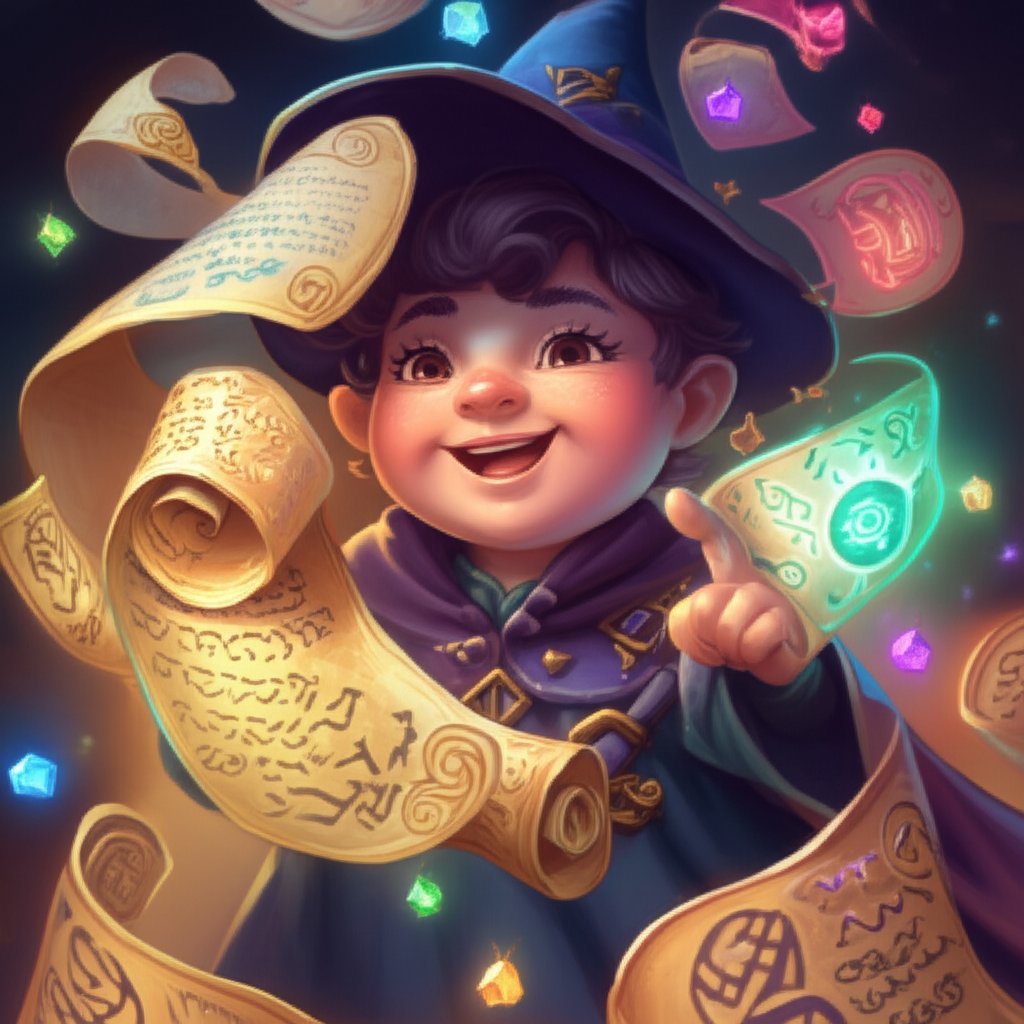
Generating Cool, Funny, or Random Mage Names
Ever wondered why some mage names stick in your mind, while others fade into the background? When you want your spellcaster to stand out—whether in a tabletop campaign, video game, or fantasy novel—a cool, funny, or truly unique name can make all the difference. But how do you come up with a name that’s clever, memorable, or even laugh-out-loud funny? That’s where tools like a cool mage names generator and a random mage name generator come in handy, along with a dash of creativity and a willingness to draw from diverse cultures.
What Makes a Mage Name Cool or Unique?
Sounds complex? It doesn’t have to be. A cool mage name usually has one or more of these qualities:
- Unexpected word combinations: Names like “Stormhex” or “Blazeweaver” blend familiar words in surprising ways.
- Evocative imagery: Names that conjure vivid mental pictures—think “Shadowflare” or “Crystal Rune.”
- Rhythmic or alliterative sounds: Alliteration or internal rhyme can make a name catchy, like “Mirabel Moonmark” or “Darius Darkdust.”
- Touch of mystery or humor: Sometimes, a name that hints at a backstory or inside joke (“Fizzlebop the Forgetful”) is what makes it memorable.
- Cultural or linguistic flair: Drawing from real-world languages or mythologies can add depth and authenticity.
When you use a cool mage names generator, you’ll notice it often combines these elements to produce original results. Try mixing and matching generated names, or tweaking them for your own twist.
Funny and Pun-Based Mage Names: Casting Spells with Laughter
Want to add a bit of levity to your character? Funny mage names are perfect for campaigns or stories that don’t take themselves too seriously. According to Funny Names Guru, a great comedic mage name can be:
- Pun-based: Names like “Al Bumen” (say it out loud!) or “Wanda Wanderson” deliver instant laughs.
- Playful twists on magical terms: Try “Hex Luthor,” “Spellman,” or “Abra Cadabro.”
- Character-driven: Names that reflect a mage’s quirks, like “Fizzlebop the Forgetful” or “Muddlewort the Clumsy.”
- Parody or homage: Give a nod to pop culture with names like “Gandalph the Grayish” or “Hermione Danger.”
These names work especially well for gnome or halfling mages, whose personalities often skew toward the whimsical or mischievous. And don’t be afraid to go a little over the top—sometimes, the silliest names are the most beloved at the table or in your story.
The Power of Random Mage Name Generators
When you’re stuck or just want to be surprised, a random mage name generator is your best friend. These tools can:
- Break creative blocks by offering unexpected combinations
- Save time when you need a long list of names for NPCs or side characters
- Help you discover new naming styles or cultural influences
As highlighted by ProWritingAid, fantasy name generators can spark inspiration, speed up the naming process, and ensure your names are unique and appropriate for your setting. Sometimes, a generated name is the perfect fit as-is; other times, it’s a starting point for your own creative spin.
Going Beyond: Culturally Diverse and Meaningful Mage Names
Imagine your mage with a name that not only sounds cool but carries real meaning—rooted in a culture or language that adds depth to your world. Using a culturally focused generator, like the Chinese Name Generator at oldwesthistory.net, lets you craft names that are both exotic and authentic. For example, a name that translates to “Celestial Dragon” or “Wise Forest” instantly suggests a backstory and ancient lineage—qualities that make your character unforgettable.
- Why use a culturally inspired generator?
- Adds genuine depth and resonance to your mage’s identity
- Provides names with built-in meanings, perfect for plot hooks or character arcs
- Helps your character stand out in a sea of generic fantasy names
Whether you’re after something hilarious, striking, or steeped in tradition, today’s name generators open up a world of possibilities. Don’t be afraid to experiment—sometimes the most memorable mage names come from the most unexpected sources. Up next, we’ll wrap up with a summary of the best strategies for finding a name that brings your fantasy spellcaster to life and point you toward tools that can deepen your creative journey.
Conclusion
When you reflect on the journey of naming your fantasy spellcaster, it’s clear that the right name can make all the difference. Have you ever noticed how a name like “Lirael Stormweaver” instantly paints a picture of a character’s power and history, while a generic name might leave your mage feeling flat? The process might seem daunting at first, but with the strategies and tools we’ve covered, you’re well-equipped to conjure a name that truly resonates.
Key Strategies for Crafting Unique Mage Names
Sounds complex? Let’s break it down into practical steps you can follow, no matter your experience level or creative style:
- Start with the basics: Consider your mage’s archetype, magical specialty, and personality. Is your character a fire-wielding battle mage, a mysterious oracle, or a cunning dark sorcerer?
- Embrace thematic resonance: Choose names that reflect your character’s magical focus, background, or race—like nature-inspired names for elves or strong, guttural names for orcs.
- Balance uniqueness and pronounceability: While it’s tempting to go wild with invented syllables, remember that the best mage name generator suggestions are both memorable and easy to say.
- Draw inspiration from culture and lore: Use mythological roots, historical references, or even real-world languages to add depth and authenticity to your mage’s name.
- Personalize with titles or epithets: Adding a descriptor—like “the Frostbound” or “of the Inferno”—instantly gives your mage a story hook and a sense of legend.
- Experiment with generators: Don’t hesitate to use a variety of tools, from gender-specific and elemental name generators to those focused on humor or darkness. Mix and match results, and tweak them until they feel just right.
Choosing the Best Mage Name Generator for Your Needs
With so many options available, you might wonder which is the best mage name generator for your project. The answer depends on your goals:
- For quick inspiration and variety, use random or theme-based generators.
- If you want a name with real meaning and cultural depth, try tools that offer authentic roots and translations.
- Looking for something truly unique? Blend generated names with your own creative twists, or use a culturally focused tool for extra resonance.
Unlocking Culturally Rich, Unique Mage Names
Imagine your mage bearing a name that not only sounds mystical but is also rooted in ancient symbolism or poetic meaning. For those seeking to go beyond the ordinary, the Chinese Name Generator stands out as a powerful resource. This tool generates names with genuine cultural significance—perfect for characters inspired by East Asian fantasy, or for anyone wanting a name that carries story, heritage, and depth. Whether you’re crafting a “Celestial Dragon” or a “Wise Forest” mage, you’ll find options that elevate your character far above the generic.
Let Your Creativity Lead
Ultimately, the most important ingredient in naming your mage is your own imagination. Use the strategies, tables, and tools we’ve explored to experiment, play, and refine until you find a name that makes your character leap off the page. Ask yourself: does this name inspire you to tell their story? Does it hint at their power, their past, or their destiny?
With the right approach—and a little help from the best tools—you’ll discover that naming your mage is more than a task. It’s the first spell you cast in bringing your fantasy world to life. So go ahead, unleash your creativity, and let your mage’s name become the legend it deserves to be!
Mage Name Generator FAQs
1. How do I create a unique mage name?
Start by considering your character's magical specialty, race, and personality. Use a mage name generator for inspiration, then blend magical roots, cultural influences, and creative suffixes to craft a name that feels both original and meaningful. Adding titles or epithets can further personalize your mage's identity.
2. What makes a mage name sound powerful or magical?
Powerful mage names often feature thematic resonance, rhythmic or alliterative sounds, and roots linked to magic or mythology. Names like 'Stormweaver' or 'Emberlyn' evoke imagery and hint at magical abilities. Pronounceability and lore consistency also help names feel more immersive and memorable.
3. Are there generators for specific mage types, like elemental or evil mages?
Yes, many generators offer specialized options for elemental mages (fire, frost, lightning), evil or dark mages, and even race-specific names. These tools help you tailor names to your character's role and magical focus, making them fit seamlessly into your fantasy world.
4. How can I make my mage's name culturally authentic, especially for DnD?
Research your character's cultural background and use name generators that focus on authentic roots. For example, the Chinese Name Generator at oldwesthistory.net creates names with genuine cultural meaning, ideal for DnD settings like Kara-Tur or for adding depth to any fantasy mage.
5. Can I use a mage name generator for funny or random names?
Absolutely! Random and funny mage name generators are great for creating lighthearted or pun-based names, perfect for whimsical characters or comic relief. Mix generated names with your own ideas for a unique and memorable result.
